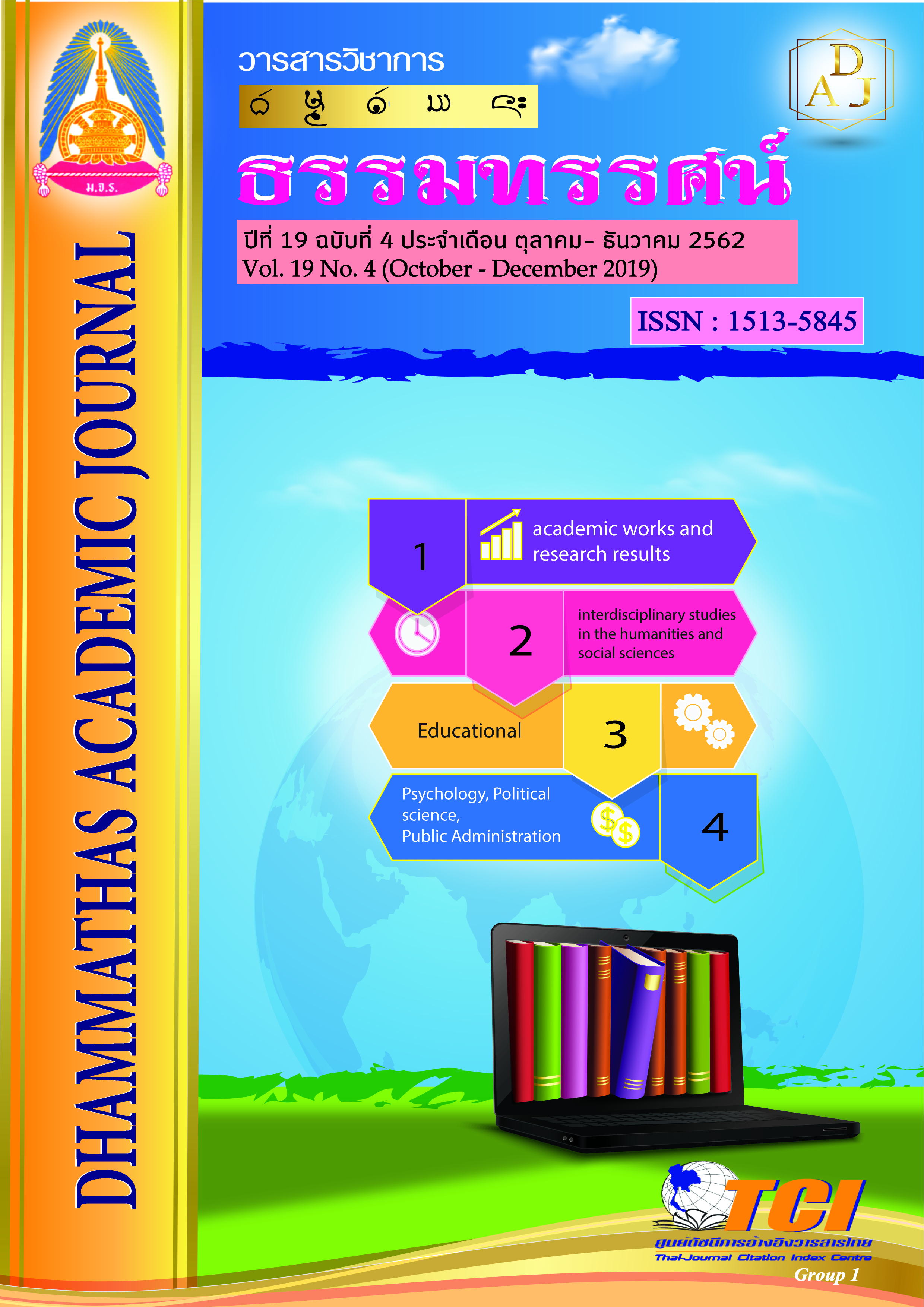The Synthesis of Social Political Thoughts of Somdet Phra Buddhakosajarn (Prayut Payutto)
Main Article Content
Abstract
The research serves specific purposes to examine Somdet Phra Buddhakosajarn’s (Prayut Payutto), political socio-thoughts. It is derived from the documentary research and interviews with implementing two sources of data. The primary source comprises his own writings, collections of keynote lectures from numerous printed matters and the online platforms. The data treated as the target essence deal with political domains and other data do with relevant fields. The secondary source embraces writings, theses, The research serves specific purposes to examine Somdet Phra Buddhakosajarn’s (Prayut Payutto), political socio-thoughts. It is derived from the documentary research and interviews with implementing two sources of data. The primary source comprises his own writings, collections of keynote lectures from numerous printed matters and the online platforms. The data treated as the target essence deal with political domains and other data do with relevant fields. The secondary source embraces writings, theses, researches and speech addresses as quoted by others, as well as academicians’ critical debates on his writings written in Thai and English versions. The research devices are surfing the Internet, synthesizing data and collecting them from relevant sources to undergo the research.
Findings have shown that: his political socio-thoughts result from his direct experiences in Buddhism. He views politics as state’s affairs or national jobs. Particularly, implementing policies on public administration has the main objective to restore peace and order of the society so that societal members live their peaceful lives under State’s public administration. In this case, politicians acting as policy holders perform their duties by implementing policies to formulate its affairs to reap benefits to people. Also, he firmly states that political affairs should solely depend on political principles other than existing rules of law. Most importantly, he focuses on rules of ethics and morality to have politicians use such rules as a self-assessment tool, or let societal members counter-check politicians’ decency of ethics and morality. His political socio-thoughts can be divided into two headings. The first one embraces ethical values in politics to reap benefits to human beings and other things-oneself, others and their society. He adds that an entirely political system must be equipped with the key aim to protect State’s benefits that prompt people to live their lives peacefully. The second heading utters, according to P.A. Payutto, that no matter either absolute monarchy, democracy, or religious righteousness-based ruling, the righteousness-based democracy (Dhammadhipatayya) is the most excellence of them all. His reason has it that this type of ruling supervised by a number of brilliant people with ethics and morality is nobler than that performed by one bright person. It is obvious that intention of his attitudes toward politics aim to create peace and bliss among humankind.

